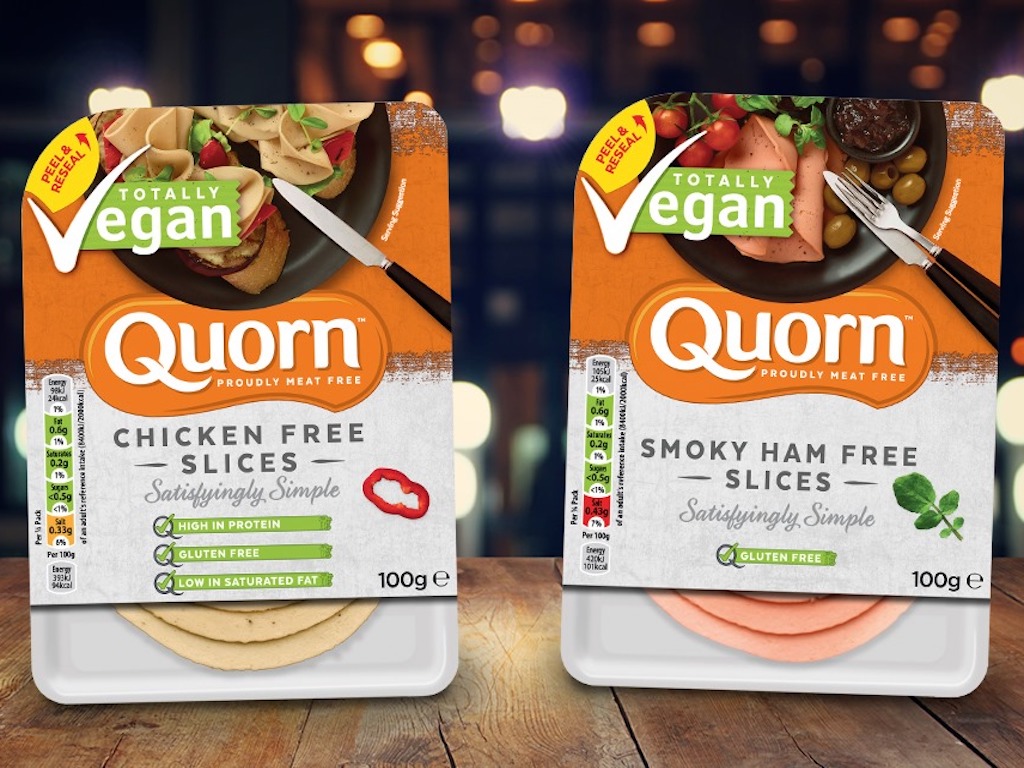Quorn Set On Tackling Obesity, Pandemics & Climate Change Together
3 Mins Read
Quorn, the legacy vegetarian and vegan meat substitute brand, says that it will be doubling down on health and sustainability focused initiatives after recognising the interconnectedness between public health and climate change. In a recent conference, the company’s sustainable development manager Tess Kelly revealed that a complete nutritional review will be conducted across Quorn’s product portfolio to assess where changes can be made to tackle both human and planetary health at the same time.
Acknowledging the links between rising global rates of obesity with climate change as outlined from a 2019 Lancet report, Kelly said that Quorn “believes we don’t have the luxury to tackle obesity, pandemics, and climate change separately any longer” at a recent Westminster Health Forum policy conference.
Speaking about the report’s findings of a “syndemic” of obesity, undernutrition and climate change, Kelly added that it “brings further importance into how we produce food at a global level,” and added that the food industry needs to do more to protect and regenerate the environment.
She also referenced the link between the obesity epidemic and an increase in the world’s consumption of animal proteins. “Over the past 50 years, our population has doubled, whilst our meat consumption and our demand for animal products has actually tripled,” Kelly said. “So we would argue that there are links between diet-related diseases [and] this increase – and the westernisation of our diets as a whole.”
Moving forward, Quorn will be assessing products individually in a complete nutritional review so that the company can identify the opportunities for improvement for its products. The well-known meat substitute brand, whose main ingredient is mycoprotein, a protein derived from mushrooms, is also going to conduct more research into the health impacts of consuming this ingredient.
Over the past 50 years, our population has doubled, whilst our meat consumption and our demand for animal products has actually tripled. So we would argue that there are links between diet-related diseases [and] this increase – and the westernisation of our diets as a whole.
Tess Kelly, Sustainable Development Manager at Quorn
Earlier this year, a study from the University of Exeter found that mycoprotein in Quorn stimulates post-exercise muscle building to a greater extent than the protein found in milk and dairy products.
“In terms of innovation, there is a significant opportunity – and an opportunity we do not want to miss – in terms of harnessing the surging concern for environmental sustainability and food, especially within our young population,” said Quorn’s sustainable development manager.
Founded in 1985, Quorn has been a long-time player in the plant-based food industry, selling meat substitute products from meat-free mince, sausages and “chicken” strips to ready-made pre-packaged meals across 18 countries. Prior to the explosion in plant-based startups that have innovated vegan meat substitutes that biomimic the texture and taste of meat, Quorn’s mycoprotein-based meatless products was one of the few supermarket brands available to vegans and vegetarians.
Earlier this year, the established meatless brand accelerated its sustainability efforts with a campaign to roll out carbon labels on 30 of its most popular products. According to the brand, the initiative was targeted at educating consumers on the footprint of their food choices, and that Quorn’s meat-free protein emits 90% fewer greenhouse gases compared to conventional beef.
Similar moves have been made by other long-time plant-based brands, including Upfield, the parent company of multiple dairy-free butters and spreads such as Becel and Flora, who revealed that it will be carbon labelling 100 million products by the end of next year.
Lead image courtesy of Quorn.




